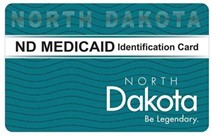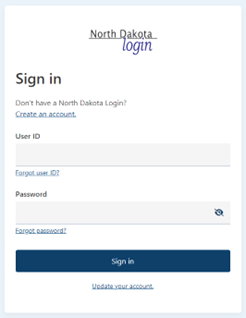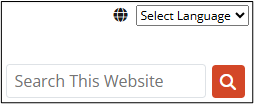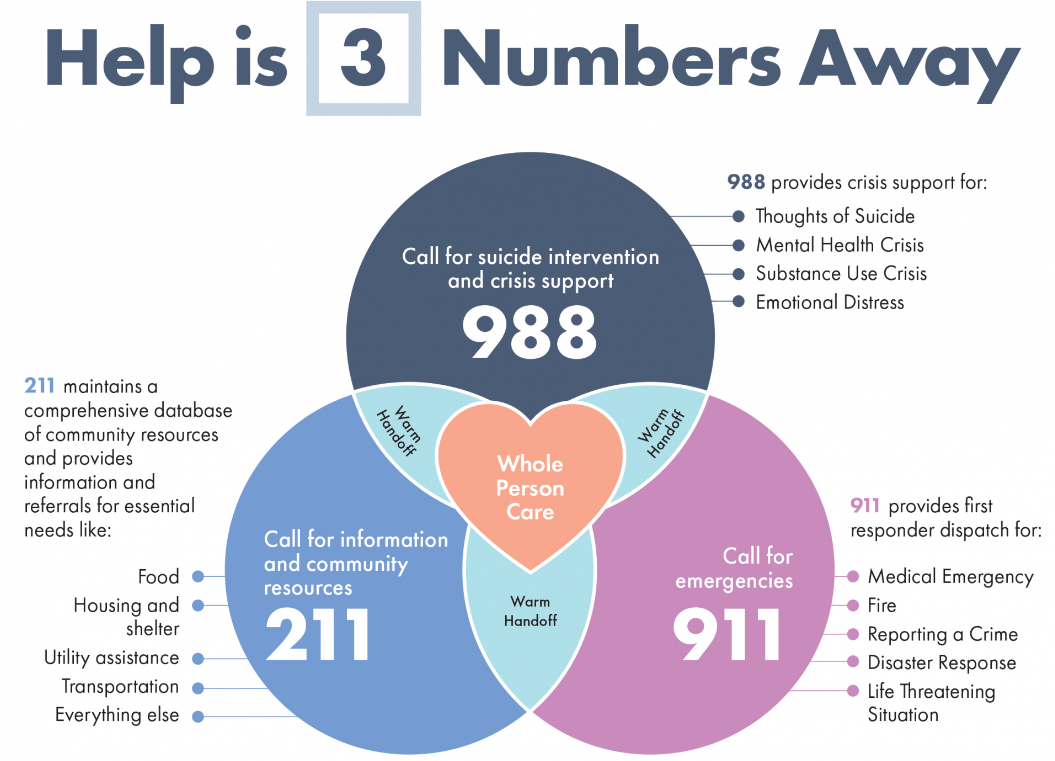Terms and Meanings
Some terms that we use in this chapter may not be familiar. These terms and their meanings are listed below.
- Alignment: To straighten the spine.
- Cessation: To stop or end a process.
- Immunization: The act of building a resistance to diseases.
- Language: The words you naturally speak.
- Pap smear: A procedure done at your doctor’s office to collect cells from the cervix for testing.
- Primary Care Provider: Your main health care professional who maintains your good health and cares for your basic health needs by giving vaccines, finding disease, and offering medication or treatment for conditions or symptoms.
- Provider: A doctor, nurse, therapist, or another qualified health care professional.
- Referral: A written order from your primary care doctor for you to see a specialist or get certain medical services.
- Screening: To look for serious health concerns.
- Services: Care, treatments, testing, checkups, equipment, supplies, and other ways your health care providers help you stay healthy.
- Substance Use: The use of alcohol or drugs causing impairment, health problems, or failure to meet responsibilities at work, school, or home.
- TTY: The number you can call to connect with someone when you have a hearing impairment.
- Vaccines: A substance that keeps you from getting sick with dangerous illnesses or diseases.
Your health care provider can prevent or treat common illnesses and conditions when you see them regularly. You can call your provider’s office to ask for a yearly exam or to visit about a specific health concern.
Adult Wellness
Adults need to see their primary care provider yearly to make sure they are healthy. This exam is meant to check your overall wellness, lifestyle, or specific health concerns. During your yearly wellness visit, your provider may take your height, weight, temperature, and blood pressure. Depending on your age or gender, your provider may suggest certain screenings or tests.
Your provider may talk to you about screenings for chronic health conditions, such as diabetes, and cancer, care for chronic conditions, or visit with you about your diet, reproductive health, mental health, or lifestyle practices.
Seeing your health care provider isn’t the only yearly exam you need. You should also visit your dental and eye care providers.
This section covers some common ways your provider may examine your health.
Behavioral Health Care
Your mental health is just as important as your physical health for well-being. Your primary care provider can visit with you about your lifestyle and mental health at your yearly wellness visit, or at a separate appointment. You can also visit your regional behavioral health clinic for behavioral health concerns. You can learn more about behavioral health care benefits in the Behavioral Health Care and Substance Use Disorder section of this handbook.
Screenings
Preventive services detect health concerns early. Medicaid covers many preventive services. Some of these are:
Breast and Cervical Cancer Screenings
Medicaid pays for breast and cervical cancer screenings. Screenings save lives and early detection is your best protection. A mammogram is the best way to find breast cancer in its earliest most treatable stage. A pap smear test and HPV test are the best ways to find cervical cancer early so that it can be treated successfully.
Medicaid’s Breast or Cervical Cancer Early Detection program covers treatment for breast cancer, cervical cancer, or pre-cancer. This program also serves those who were enrolled in Women’s Way when they were diagnosed with and needing treatment for breast cancer, cervical cancer, or a pre-cancerous condition related to breast or cervical cancer.
To learn more about Medicaid’s Breast or Cervical Cancer Early Detection Program contact:
Colorectal Cancer Screenings
Colorectal cancer is one of the most commonly diagnosed cancers. It affects both men and women. Recent trends show rates rising in younger people.
People of average risk should start screening at age 45 and continue through age 75. People of increased risk should be screened sooner and/or more often. You may be at increased risk if you have a family history of colorectal cancer, polyps, or have certain medical conditions like ulcerative colitis.
Screenings find cancer, and in some instances, can even prevent it. Your outcomes can be greatly improved by finding colorectal cancer in its early stage. There are different test options. Some tests can be done at home. Ask your primary care provider how to make an appointment for your screening.
Lung Cancer Screenings
In North Dakota, lung cancer is the most diagnosed cancer that affects both men and women. Lung cancer has the highest rate of late-stage diagnosis and has the highest mortality rate. Lung cancer screenings are recommended for older adults who are current or previous longtime smokers who do not have any signs or symptoms of lung cancer. Doctors use a low-dose CT (LDCT) scan of the lungs to look for lung cancer. If lung cancer is detected at an early stage, it's more likely to be cured with treatment. Ask your primary care provider if you should be screened. Below are resources for understanding more about lung cancer screenings.
You can learn more about getting help to quit smoking in the Tobacco Cessation section found in the Medicaid Programs section of this handbook.
Immunizations
Immunizations aren’t just for children. There are several routine vaccines you may need as an adult. Adults need to keep their immunizations up to date because the immunity you built up from childhood vaccines can wear off over time. You are also at risk of different diseases as an adult. Immunizations are one of the most convenient and safe preventive care measures available. You may need other immunizations based on your age, health conditions, job, lifestyle, or travel habits. Your provider can help you understand which immunizations are right for you.
Child Wellness
Children go through many changes as they develop so they need to see their health care provider more frequently than adults. Health Tracks can help you make sure your child’s mental and physical health care is on track.
Wellness Visits
Children go through many changes as they develop so they need to see their health care provider more frequently than adults. We can help you make sure your child’s behavioral and physical health care is on track. We cover your child’s checkups, vaccines, screenings for health concerns, referrals for further care, and other preventive health care. These checkups happen from the time they are born through age 20. Our Quality Outreach team can even help arrange rides to your child’s appointments. We can also guide you through managing your health care as a young adult. If you need help with your child’s wellness visits, referrals, or to arrange rides to your child’s appointments, you can:
Behavioral Health Care
For many children, developmental delays or behavioral concerns are not found as early as possible. Significant delays may occur and opportunities for treatment may be missed. Early treatment and care help children in social settings and at school.
About 1 in 6 U.S. children aged 3 to 17 years have one or more developmental or behavioral disabilities. Common concerns are autism, a learning disorder, attention-deficit/hyperactivity disorder, and language delays.
You can talk to your child’s provider about getting a screening for developmental concerns, behavioral/social/emotional concerns, adolescent depression and suicide risk, or substance use.
You can learn more about behavioral health care in the Behavioral Health Care and Substance Use Disorder chapter of this handbook.
Dental
We recommend that you bring your child to the dentist at the sight of their first tooth, but no later than 12 months old. Dental visits can find and treat oral health concerns such as cavities. Cavities can lead to pain and infection causing problems with eating, speech, and more.
We cover two dental exams per year and may cover cleanings, x-rays, sealants, and fillings. We also cover fluoride varnish applications two times per year when applied by a non-dental clinic and three times per year when applied by a dentist.
Your child may be able to get orthodontic care. Orthodontia treats more serious dental conditions such as teeth and jaw alignment.
Schedule an appointment with your child’s dentist if you feel that your child may need to see an orthodontist. Your child may be screened to see if they are able to have covered orthodontia services. These services could include
You can learn more about preventive dental care in the Dental chapter of this handbook.
Immunizations
Immunization is the body’s process of building anti-bodies against harmful diseases to protect itself. Vaccines are given on a regular schedule to help your child’s body become immune to these diseases.
Children start getting vaccines at birth. Together with your provider, we can help you to know when your child is due for their next vaccines. Your child’s health care provider can check their vaccine record and give them the vaccines they need to be protected.
You can find an immunization schedule on our website.
Vision
Getting your child’s eyes checked regularly can keep their eyes healthy, check their vision, and correct their vision when needed. There is no age requirement to have your child’s eyes checked if you have concerns for your child’s vision. We cover one exam and one pair of glasses per year.
If your child as a large change in their vision, a second pair of glasses may be approved. Your eye doctor can help you request prior approval if needed. Certain lenses and frames are coved. Your provider can help you understand your options. Replacement for broken glasses may be covered.
We only cover contact lenses when medically necessary and with prior approval.
You can talk to your provider to learn more about coverage for your child’s vision care. You can learn more about vision care in the Vision chapter of this handbook.
Wellness Visits
Children should get a wellness visit at regular times, even when they are feeling well. Your child’s visit may offer:
- Dental screening including fluoride varnish
- Developmental and behavioral screening
- Growth and development checks
- Health education for parents and teens
- Hearing screening
- Hearing aids
- Immunizations
- Labs
- Nutrition counseling
- Other health services
- Physical exam
- Substance use education and more
- Vision screening
Babies grow fast and need a lot of wellness visits. They need checkups when they are ages:
- 1 month
- 2 months
- 4 months
- 6 months
- 9 months
- 12 months
Your toddler should have a wellness visit when they are ages:
- 15 months
- 18 months
- 24 months
- 30 months
Your child should have a wellness visit every year from age 3 until they are age 21. Added checkups are also covered based upon a child’s needs.
Dental Care
Regular dental care is also important for your well-being. By addressing dental issues early, dentists can help you maintain good oral hygiene, reduce the risk of tooth decay and gum disease, and other dental problems. You can learn more about preventive dental care in the Dental section of this handbook.
Vision Care
Getting your yearly visit with an eye care provider can help you correct your vision, address concerns you have for your eyes, or maintain good vision. You can learn more about preventive vision care in the Vision chapter of this handbook.
How to Choose a Primary Care Provider
Staying healthy is more than just going to the doctor when you’re sick. Your primary care provider helps you stay healthy by overseeing routine health care and offering preventive services. Regular preventive services help you know if you are developing a serious illness, giving you the best chance for a healthy life. Tips for choosing your primary care provider are:
- Choose a location close to home, school, or work: Make sure that you can easily get to your provider’s office. You can learn more about transportation in the Non-Emergency Medical Transportation chapter of this handbook.
- Make sure your provider accepts ND Medicaid: The provider you choose must be enrolled as a ND Medicaid provider.
- Ask if your provider is accepting new Medicaid patients.
- Pick someone who makes you feel comfortable: You may want to go to a provider who knows your health history. You should feel comfortable with your provider. Some things to consider may be your provider’s language, cultural background, and gender. You should feel that your provider understands your health concerns. Decide if you want one primary care provider for your whole family or a different provider for each family member.
- Find a provider who can understand you: Ask if your provider is familiar with your cultural traditions. Your provider should be able to communicate with you in a way you understand. If the provider of your choice cannot speak your primary language, we can cover the cost of a translator. You can ask your provider to arrange a translator during your appointments.
- Ask about special needs: If you or someone in your house has health care needs because of an uncommon illness or condition, ask if the provider can meet your needs.
Make your first appointment: After you choose your primary care provider, call their office to schedule a preventive visit.
Talking to Your Doctor
Your primary provider can help you navigate your health care. Clear and honest talks with your provider can help you both make informed choices about your health care. It’s important to be honest and upfront about your symptoms even if you feel embarrassed or shy. Have an open dialogue with your provider— ask questions to make sure you understand your diagnosis, treatment, and recovery. Here are a few tips to make the most of your appointment:
- Write down a list of questions and concerns before your appointment.
- Consider bringing a close friend or family member with you.
- Take notes about what the provider says or ask a friend or family member to take notes for you.
- Learn how to access your medical records, so you can keep track of test results, diagnoses, treatments plans, and medications and prepare for your next appointment.
- Ask for the provider’s contact information and how you should ask for additional information or help.
- Remember that nurses and pharmacists are also good sources of information.
Finding Your Primary Care Provider
We can help you find a primary care provider. To find a primary care provider:
- See our list of Provider Directory
- Once you have chosen a provider, make sure to call their office and ask if they are:
- Accepting new patients
- Accepting Medicaid
- Contact our Customer Support Center
Patient Expectations
- Appointment Scheduling: When you have a scheduled appointment but feel that you cannot make it, call your provider, and cancel or reschedule the appointment as soon as you know you cannot go.
- Pre-planning health care: Make appointments further out for health care you know will be needed, such as immunizations or your yearly wellness check and sports physical.
Contact Information Mentioned in this Chapter
- Customer Support Center, Monday-Friday, 8:00 a.m. - 5:00 p.m. CT
- Toll-Free: (866) 614-6005
- Local: (701) 328-1000
- TTY: 711
- Free translation available upon request
- Email: applyforhelp@nd.gov
- Mail: Customer Support Center
PO Box 5562
Bismarck, ND 58506 - Fax: (701) 382-1006
- In person: Visit a human service zone office. Find one near you.
 Select your language. Look for this translation feature at the top, right corner of our website.
Select your language. Look for this translation feature at the top, right corner of our website.




